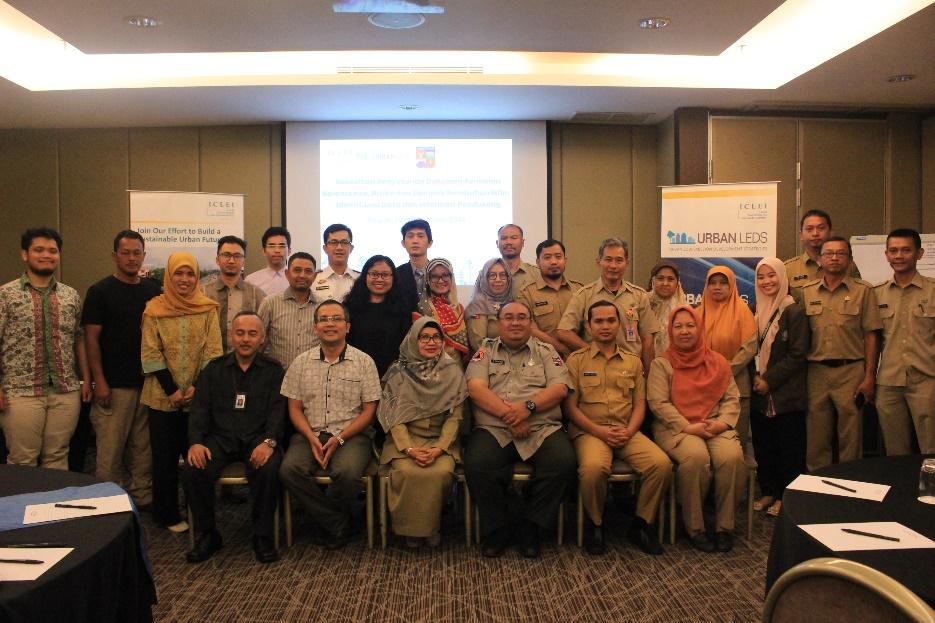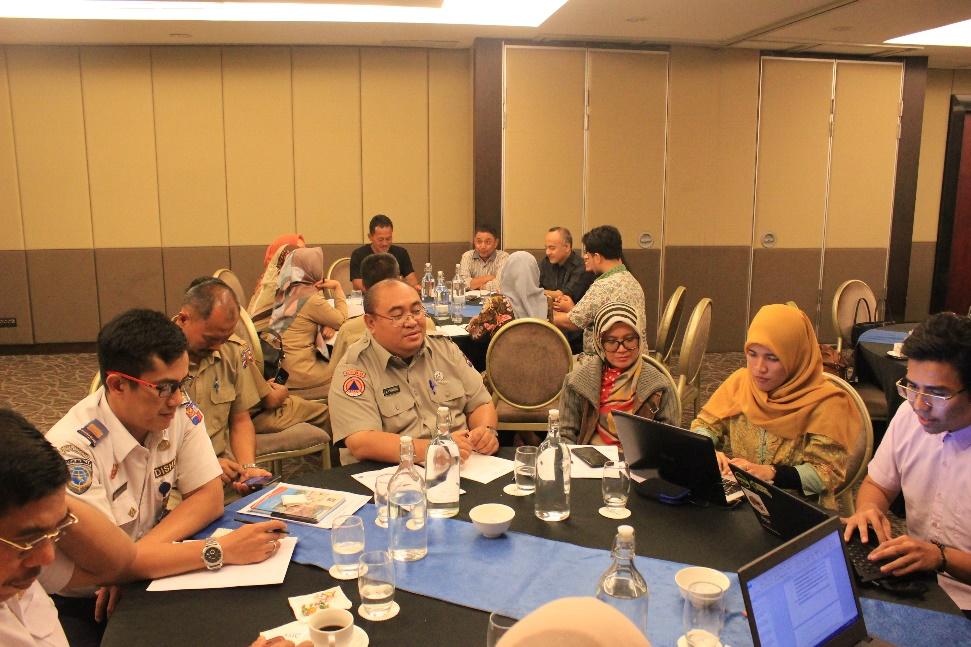
Urban-LEDS cities will come together in Madrid to scale up local implementation of the Paris Agreement at the COP25
November 27, 2019
Urban-LEDS II supports Balikpapan City in conducting climate risk and vulnerability assessment
November 29, 2019ICLEI Southeast Asia and the City Government of Bogor are conducting a climate risk and vulnerability assessment (CRVA) to support the development of an integrated climate action plan.

A consultation on climate risk and vulnerability assessment with a focus on the identification of supporting data and information was held last 19 November 2019 at Aston Sentul Lake Resort & Conference Center, Bogor. The consultation aimed to provide up-to-date information on environmental issues and Bogor City’s priority areas and climate risks and vulnerabilities. The activity also served as a platform to identify resources, urban systems, and the communities that are likely to be most affected by the changing climate conditions.
The consultation was attended by the representatives from local government organizations, namely the local development planning agency, local disaster management agency, central statistical agency, meteorological climatology and geophysics agency, communication and information agency, environment agency, food, agriculture and fisheries agency, tourism agency, transportation agency, social agency, head of sub-district and Komunitas Peduli Ciliwung Bogor as well as Komunitas Pejalan Kaki Bogor as the representatives from local NGOs.
“Due to climate change, Bogor city faces water and air quality degradations as well extreme weather” Mrs. Tety Sovia from Environment Agency informed the participants of the event. She also highlighted that health, infrastructure, and settlement sectors bear the negative impacts of climate change. To address these issues, several programs are being carried out such as car-free day, reduction of the use of plastic bags supported by Mayor Regulation issuance, Bogor city walkability campaign, and climate village program, to name a few.
On the other hand, Mr. Ari Priyono from Local Disaster Management Agency showed the top three frequent disasters throughout 1992-2017, which are landslides (40.89%), extreme weather (37.82%) and flood (13.94%). He also added that the risk of those disasters occuring is at a high level.
As an initial step to implement the Ministry of Environment and Forestry Regulation (MoEF) number 7 of 2018 on CRVA, the participants discussed to determine the climate triggers or disasters, scope, baseline, and projection years. It was agreed that landslides, floods, extreme weather events (including extreme rain, strong winds, and high temperature) are the primary climate triggers affecting food, water resources, waste, and ecosystems. Next, 2020 is the baseline year and this assessment will be projected by 2030 and 2050, respectively to be inline with the year of Indonesia’ Nationally Determined Contribution and MoEF Regulation No. 7 of 2018.
The activity was conducted under the project accelerating climate action through the promotion of Urban Low Emission Development Strategies Phase II. (Urban-LEDS II) Bogor city is one of the model cities under the Urban-LEDS II project that is funded by the European Commission and jointly implemented by ICLEI Local Governments for Sustainability and UN-Habitat

